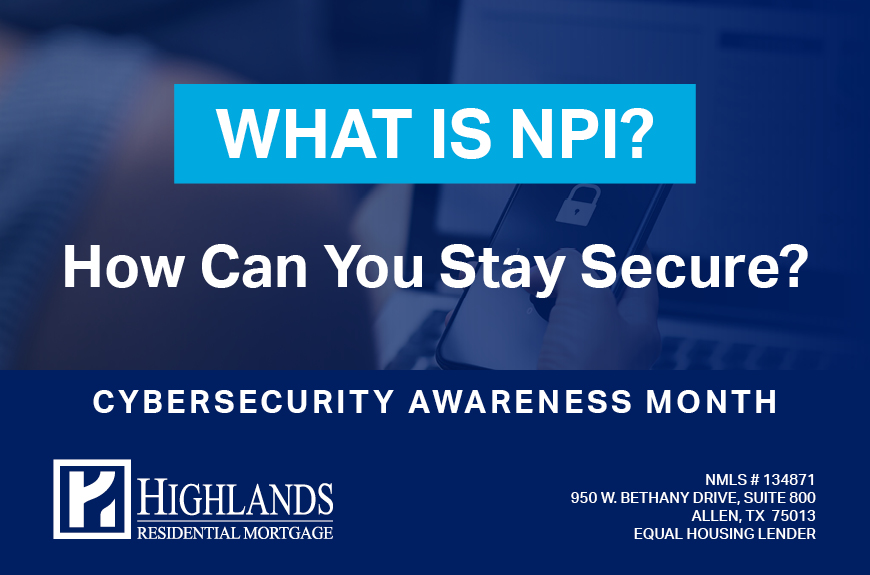
Highlands Residential Mortgage values your trust and we work every day to make sure your financial information is protected.
Throughout the mortgage process, nonpublic personal information (NPI) is shared through documentation and communications. This can include emails, files shared, discussions between parties to the loan transaction, etc. This makes the mortgage industry, and by extension our clients, a vulnerable target for data breaches.
Protecting your data is paramount to our team. Here are a few ways we ensure your data is safe from bad actors:
- Our industry-leading point-of-sale platform provides a seamless and secure mortgage experience for our customers. This includes the loan application process, secure document share, Hybrid eClosing, and more.
- We have strict policies that govern how we handle and protect data within our technology ecosystem.
- We adhere to the FFIEC and Gramm-Leach-Bliley Act that governs this process. For more details on GLBA, check out this reference: https://www.ftc.gov/business-guidance/resources/how-comply-privacy-consumer-financial-information-rule-gramm-leach-bliley-act
- HRM and its preferred vendors ensure the physical and digital security of its mortgage technology and data through industry-leading security technology and processes. The Information Security Department consists of skilled teams that work to protect confidential data from unauthorized access, misuse, disclosure, destruction, modification, or disruption.
Curious as to what counts as types of NPI (Nonpublic Personal Information)? See the below examples.
- Any information you provide to get a financial product or service (for example, name, address, income, Social Security number, or other information on a mortgage application).
- Supporting income, asset, or credit information used in the mortgage transaction – such as account numbers, payment history, loan or deposit balances, and credit or debit card purchases.
- Additional supporting details surrounding personal and property items, such as information from court records or a consumer report.
How Can You Stay Secure?
Even the most tech-savvy and intelligent people can inadvertently fall prey to a phishing scam or social engineering geared at getting at things you are trying to keep private and secure.
So how do you make sure that you stay safe? Here are a few simple tips that can help you avoid getting hacked.
- Use two-factor authorization on all accounts that have it available. This is becoming standard, especially with products from companies like Google, Facebook, Twitter, and more.
- Use a trusted password management app. A password manager can help you use password best practices by generating random 12-16 digit passwords to use on your accounts and save them in the app for protection.
- Watch out for suspicious emails. Phishing scams can get sophisticated, so be wary of emails that seem out of context or that have branding that seems a little different.
- Always make sure the sender is known before opening attachments in emails or chat apps.
- Never share your login information.
- Make sure that your computer and device have trusted anti-virus software installed.
- If you hear about a breach, such as the recent Equifax breach, check to make sure your related accounts haven’t been impacted. Be sure to update your passwords and activate two-factor authorization if available.

